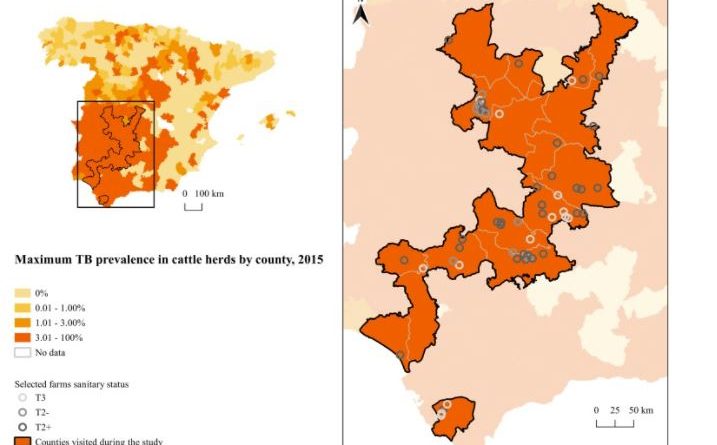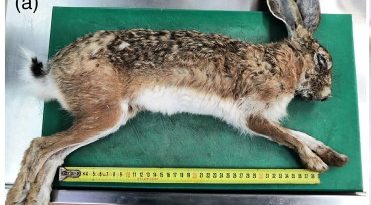Description and implementation of an On-farm Wildlife Risk Mitigation Protocol at the wildlife-livestock interface: Tuberculosis in Mediterranean environments
Preventive Veterinary Medicine
Abstract
Animal tuberculosis (TB), which is caused by the Mycobacterium tuberculosis complex (MTC), is a zoonotic disease of global concern, and has a wide variety of wild and domestic reservoirs that can establish complex epidemiological systems. Of all the strategies employed to control TB, reducing the risks of interaction at the wildlife-livestock interface is a cornerstone. However, detailed protocols with which to assess and implement farm-specific preventive actions that can be employed against interactions with wildlife are lacking for extensive production systems. We describe an On-farm Wildlife Risk Mitigation Protocol that is applicable to beef cattle farming in Mediterranean environments in order to control the wildlife-livestock interaction and MTC transmission through the use of Farm-specific Action Plans (FsAP). We assessed the implementation and verification of FsAP in terms of its practical feasibility and acceptability by farmers (n=55 farms). Of the potential risk points, waterers (41.3 %) and waterholes (24.4 %) were the most common. Waterholes and springs were identified as the points with the greatest risks. Actions related to water management were essential on most farms (99 % of the high-risk points), as were those regarding wildlife management (36.4 % of the farms provided wild boar or cervids with supplementary food for hunting purposes). Overall, 75 % of the farmers adopted the plans to some extent, with an average of 31.8 % of actions implemented, but with high variability depending on the type of actions proposed. Farmers prioritised low-cost measures. Our results, in their entirety, indicate that the adoption of this On-farm Wildlife Risk Mitigation Protocol is practical and feasible in Mediterranean ecosystems, and can be easily transferred to professionals and adapted to other bioregions or epidemiological systems. The subsequent evaluation of FsAPs in terms of efficacy and cost-effectiveness, along with increasing their acceptance by farmers, are necessary steps for the further development of TB Risk Mitigation Programmes at a nationwide level.




